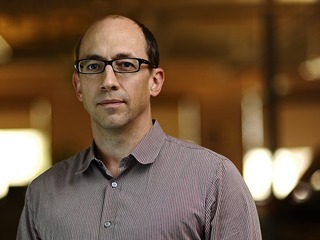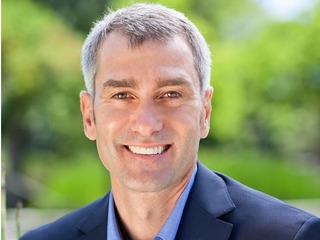New disease models unlocking secrets to neurological research
Advances in technology, like in vitro and microfluidics, have helped advance research
Read more...In just the last nine months we have seen a number of high profile departures, and a couple of tragedies, that have put a new face on numerous tech companies. That means what when 2015 is said and done (only three and half months from now! Where did the time go?) the CEO landscape is going to look at lot different than it did in the beginning of the year.
Two of the best known companies that saw changing of the guards were Cisco and Evernote, each of which had their long-time CEOs step down.

In May, John Chambers, who has been in charge of Cisco for the last 20 years, announced that he was stepping down in July.
The company named Chuck Robbins, its Senior Vice President of Worldwide Field Operations, as its new Chief Executive Officer. In addition, Robbins was also named a member of the board of directors.
A 17 year veteran of the company, Robbins led the company’s Worldwide Sales Organization and Worldwide Partner Organization, where he "helped drive and execute many of the company’s investment areas and strategy shifts," according to his company bio. The teams that Robbins led drove $47 billion in business for Cisco.
He was also a sponsor for two of the company's biggest acquisitions: Sourcefire and Meraki.
Chambers, meanwhile, didn't leave the company for good, as he will continue to serve as the Chairman of Cisco’s Board.

The other somewhat surprising departure was that of Phil Libin, who revealed in July that he was stepping down as CEO, a position he had held since the company was founded in 2007, though not away from the company entirely.
Libin detailed why he felt that he should relinquish control of the company, namely that he felt that someone else would do a better job of helping it achieve its true potential.
His replacement will be ex-Googler Chris O'Neill, who most recently ran the business operations at research unit Google X. Prior to that he was managing director of Google Canada. In all O'Neill had worked at the company in various positions for 10 years.
Libin's role with the company going forward will now involve him staying on as executive chairman, as well as him "doubling down on making great products" at Evernote.

One CEO change was close to our hearts over here at Vator was that of Cyril Brignone, who was appointed as the new CEO of the company, replacing Shane Dyer, Arrayent's founder, who had been in charge of the company since 2002.
The reason it means a lot to us here is because Brignone is also the co-founder and former COO of this very website. At Vator.TV, he was the architect of the Vator platform, and established business partnerships with premier companies including AOL, Entrepreneur.com, Microsoft and others.
Brignone joined the company as Director as Product in 2011. After that he went to Europe to expand the company overseas, and was able to grow it to 50% of the company's revenue in one year, after which he became GM of Europe for Arrayent.
There was no indication of what role, if any, Dyer would have with the company going forward.

While most founders stick with their companies through their IPO, sometimes they realize that they may not be the best person to get the company there.
That was the case with Andrew Levy, co-founder and CEO of Crittercism, who announced in May that he will would be stepping down from his position, which he had held since 2010, in order for it to be led by someone with greater expertise than he had, who could take the company do the next level.
He had already found his replacement in Dave Robbins, former CEO of systems management company BigFix and, at the time, the current CEO of MokaFive.
Levy had met Robbins four months before thinking he might become an adviser to the company but instead said that he "was more than impressed by his enterprise software background, his ability to align teams and drive execution."
Rather than leaving the company, Levy transferred over to becoming Chief Strategy Officer, which means spending time on the road working with prospects, customers, and partners, and leading strategy and focus on product.

So far all of the old CEOs on this left have stepped down by choice. As we all know, though, that is not always the case.
Take Informatica, a publically traded company, that was sold for approximately $5.3 billion to to a company controlled by the Permira funds and Canada Pension Plan Investment Board (CPPIB), last month.
In addition to ceasing trading on the NASDAQ, the company was also given new CEO in Anil Chakravarthy, its former chief product officer. He had also previously been an executive at Symantec from 2004 to 2013, before joining Informatica.
Sohaib Abbasi, who had been both chairman and chief executive officer of the company for over a decade, will continue to serve as chairman of Informatica.

Sadly, there were two companies that lost their CEOs due to tragic, and unforeseen, circumstances.
The first was SurveyMonkey, who lost CEO Dave Goldberg, who ran the company for six years, following his sudden and unexpected death while he was vacationing in Mexico in early May.
Despite the sad news, the company had to go on, and, after a three month search, chose HP's Bill Veghte, to take over the position effective on August 3.
Veghte has been with Hewlett Packard since 2010, where he started as Executive Vice President and General Manager of HP Software, before becoming its Chief Operating Officer and Chief Strategy Officer in 2012, where he was leading its Enterprise Group.
Prior to that he had spent 20 years at Microsoft, working on products that included Microsoft Office, Windows, and Server. He became Senior Vice President of Windows in 2007.
In addition to becoming CEO, Veghte will also become a member of the company's board of directors, where he will join the two newest members: Sheryl Sandberg, COO of Facebook and Goldberg's widow, and David Ebersman, chief executive officer of Lyra Health, and the former CFO of Facebook.
Upon Goldberg's death, SurveyMonkey had revealed that Zander Lurie, a Senior Vice President at GoPro, and a SurveyMonkey board member since 2009, would serve as temporary Executive Chairman of the SurveyMonkey board for a period of three months. Lurie has since been named as the permanent chairman of the board.

The other well known CEO to tragically lose his life was Satoru Iwata, the long-time President and CEO of Nintendo, who died suddenly in July. Iwata's cause cause of death was listed as a growth in his bile duct, which he had had surgery on in June of last year. He was only 55 years old.
Tatsumi Kimishima, who has worked for Nintendo since 2002, was named as his replacement. Kimishima had spent the last two years as Managing Director of the company, after spending the previous seven years as CEO of Nintendo of America. Before that he spent almost 20 years as a banking executive.
Iwata had been President of Nintendo for 13 years before his death. In May 2002, less than two years after he joined the company, he was appointed as President when Hiroshi Yamauchi, the company's president since 1949, retired. So obviously when Nintendo appoints someone to this role they expect them to keep it for quite a long time.

Perhaps the most contentious CEO replacement was over at Reddit, where Ellen Pao was forced out by the community. The former partner at Kleiner Perkins Caufield & Byers was appointed as the head of the company in November of last year, following the strange resignation of Yishan Wong.
Following the firing of a popular Reddit employee, Victoria Taylor, who ran the site's Ask Me Anything (AMA) feature, Redditors immediately began signing a petition to have Pao fired. She did not help her cause when she, for some reason, would not apologize for whatever happened.
The seeds of Pao's leaving the company started when she instituted an anti-harrassment policy on the site, which angered many members. The irony is that Steve Huffman, founder and the original Reddit CEO, who took the job once Pao stepped down, also said he was totally fine with moderating content, and even implimented his own content rules.
For some reason, though, the calls for him to be fired don't seem to have become as much of an issue. It's up to you to decide the reason for that.

Huffman wasn't the only former CEO to make a triumphant return this year. In fact there were three others who did the same thing, two of them extremely controversial.
The most surprising one was Tinder CEO Sean Rad who only officially lost his job in November of last year, but was not replaced until March of this year, and was then rehired in August.
Firing Rad merely seemed like damage control over a very public sexual harassment claim last year from company co-founder and former VP of marketing Whitney Wolfe, and it honestly never much seemed like Tinder was actually interested in replacing him.
Tinder settled the sexual harassment claim in September of last year, with the company having not actually admitted any wrongdoing.
Rad's, temporary, replacement had been Chris Payne, a former executive at eBay and Microsoft.

The other big comeback was Zynga's co-founder, and former CEO of the company, Mark Pincus, who returned less than two years after losing the job, following his controversial reign, which included accusations of insider trading.
His replacement had been Don Mattrick, who had worked at Electronic Arts for 25 years before coming in to oversee the Xbox 360 business at Microsoft in 2007. Mattrick's left the company, and its Board of Directors, following Pincus' return.
Pincus had remained as Chairman of the Board of Directors and Chief Product Officer of the Company after losing his CEO job.
At his own request, Pincus will receive an annual salary of $1 as CEO.

The last big CEO return is currently the most unsettled.
In early June, following months of pressure from investors over falling user numbers, and numerous people calling for his head, Twitter CEO Dick Costolo announced that he was stepping down from the position effective effective July 1.
His replacement was a familiar face: Jack Dorsey, Twitter's Co-Founder and Chairman of the Board, who said he would step up on an interim basis, despite also being the CEO of another big tech company, one that might be having its IPO soon, Square.
Since then the question of whether Dorsey will stay on as CEO of Twitter has been driving investors crazy. At least one of them really wants him to guide the strugging company going forward, though Dorsey himself has said that he considers himself the CEO or Square and that he will not leave that position.
That means that Twitter has been without a permanent CEO for two and half months and one of its most high profile investors, Chris Sacca, is having a complete meltdown over that fact. He too wants Dorsey to stay, but more than anything he seems to want someone, anyone, to finally take charge of Twitter.
It should also be noted that Costolo said he will not be leaving Twitter entirely, and that he would continue to serve on the company's Board of Directors, though there are rumors that he will step down from that position as well once a perminent CEO is named.
With all of the turnover at the highest positions of the top tech companies this year, who knows who else will be out of a job by the time 2016 rolls around. It could be almost anyone, except, apparently, Marissa Mayer, who has figured out a pretty novel way to keep her job.
Advances in technology, like in vitro and microfluidics, have helped advance research
Read more...Robots are taking over the heavy lifting work inside warehouses
Read more...The company also expanded access to 12 different provider types for male fertility care
Read more...Startup/Business
Joined Vator on
Zynga is the largest social gaming company with 8.5 million daily users and 45 million monthly users. Zynga’s games are available on Facebook, MySpace, Bebo, Hi5, Friendster, Yahoo! and the iPhone, and include Texas Hold’Em Poker, Mafia Wars, YoVille, Vampires, Street Racing, Scramble and Word Twist. The company is funded by Kleiner Perkins Caufield & Byers, IVP, Union Square Ventures, Foundry Group, Avalon Ventures, Pilot Group, Reid Hoffman and Peter Thiel. Zynga is headquartered at the Chip Factory in San Francisco. For more information, please visit www.zynga.com.
Startup/Business
Joined Vator on
Our goal at Evernote is to give everyone the ability to easily capture any moment, idea, inspiration, or experience whenever they want using whichever device or platform they find most convenient, and then to make all of that information easy to find.
And we’ve done just that. From creating text and ink notes, to snapshots of whiteboards and wine labels, to clips of webpages, Evernote users can capture anything from their real and digital lives and find it all anytime.
Evernote is an independent, privately held company headquartered in Mountain View, California. Major investors include Sequoia Capital, Morgenthaler Ventures, Troika Dialog, and DOCOMO Capital.
Startup/Business
Joined Vator on
Twitter is an online information network that allows anyone with an account to post 140 character messages, called tweets. It is free to sign up. Users then follow other accounts which they are interested in, and view the tweets of everyone they follow in their "timeline." Most Twitter accounts are public, where one does not need to approve a request to follow, or need to follow back. This makes Twitter a powerful "one to many" broadcast platform where individuals, companies or organizations can reach millions of followers with a single message. Twitter is accessible from Twitter.com, our mobile website, SMS, our mobile apps for iPhone, Android, Blackberry, our iPad application, or 3rd party clients built by outside developers using our API. Twitter accounts can also be private, where the owner must approve follower requests.
Twitter started as an internal project within the podcasting company Odeo. Jack Dorsey, and engineer, had long been interested in status updates. Jack developed the idea, along with Biz Stone, and the first prototype was built in two weeks in March 2006 and launched publicly in August of 2006. The service grew popular very quickly and it soon made sense for Twitter to move outside of Odea. In May 2007, Twitter Inc was founded.
Our engineering team works with a web application framework called Ruby on Rails. We all work on Apple computers except for testing purposes.
We built Twitter using Ruby on Rails because it allows us to work quickly and easily--our team likes to deploy features and changes multiple times per day. Rails provides skeleton code frameworks so we don't have to re-invent the wheel every time we want to add something simple like a sign in form or a picture upload feature.
There are a few ways that Twitter makes money. We have licensing deals in place with Google, Yahoo!, and Microsoft's Bing to give them access to the "firehose" - a stream of tweets so that they can more easily incorporate those tweets into their search results.
In Summer 2010, we launched our Promoted Tweets product. Promoted Tweets are a special kind of tweet which appear at the top of search results within Twitter.com, if a company has bid on that keyword. Unlike search results in search engines, Promoted Tweets are normal tweets from a business, so they are as interactive as any other tweet - you can @reply, favorite or retweet a Promoted Tweet.
At the same time, we launched Promoted Trends, where companies can place a trend (clearly marked Promoted) within Twitter's Trending Topics. These are especially effective for upcoming launches, like a movie or album release.
Lastly, we started a Twitter account called @earlybird where we partner with other companies to provide users with a special, short-term deal. For example, we partnered with Virgin America for a special day of fares on Virginamerica.com that were only accessible through the link in the @earlybird tweet.
What's next for Twitter?
We continue to focus on building a product that provides value for users.
We're building Twitter, Inc into a successful, revenue-generating company that attracts world-class talent with an inspiring culture and attitude towards doing business.

Joined Vator on

Joined Vator on

Joined Vator on

Joined Vator on










